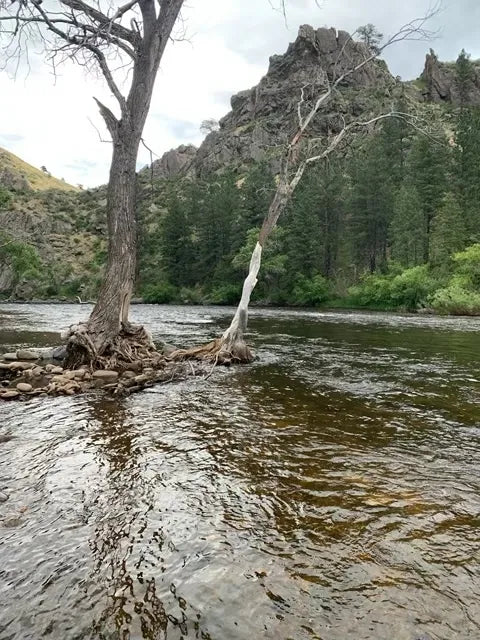
Protecting Inland Waterways for the Benefit of Ocean Ecosystems
Share
This is post 2 of 3 of the Reef Healers Water Series.
Inland water-ways are an important area to raise awareness and support for because coral reefs and marine species can be highly sensitive to changes in water quality. Threats to inland waterways can come in many forms, including agricultural runoff, industrial wastewater, sewage effluent, litter/trash, flow manipulation, and more. Other human activities such as deforestation, urbanization, and industrialization can negatively impact rivers and streams if poorly managed, leading to changes in water quality, reduced availability of water for people and wildlife, increased erosion rates, and degradation of aquatic ecosystems. Pollutants and harmful sediments that leach into waterways from these activities can cause oxygen depletion, algal blooms, and other impactful changes to the aquatic environment that result in oceanic dead zones where most life cannot survive. A new awareness is needed toward water cycle interconnectivity because pollution accumulated in rivers and streams hundreds of miles inland can have severe negative impacts on wetland and ocean ecosystem health downstream, ultimately coming back to threaten our livelihoods.
Many passionate organizations have created innovative solutions to help spread awareness for and take action against river pollution and provide resources for others to do the same. According to The Ocean Cleanup (https://theoceancleanup.com/sources/) rivers are a major contributor to the amount of harmful plastics and waste materials in our oceans. With highly effective data collection systems they have further proven the fact that rivers all around the world are transporting more wastes than many may initially believe. This is extremely important data that all should be grateful for as it will help various entities to identify where support is needed.
The key ways in which inland communities can help protect the water cycle and improve ocean health is by taking responsible action to preserve their local water resources and the ecosystems that rely on it. These actions include:
1. Conserving and protecting wetlands, which help to filter pollutants and reduce runoff.2. Reducing water usage through conservation measures, such as efficient water usage in agriculture, landscaping, and buildings3. Implementing best management practices in agriculture to reduce fertilizer and pesticide runoff.4. Supporting sustainable wastewater treatment practices to reduce pollution from sewage.5. Supporting land use policies that protect and conserve freshwater resources, such as conservation easements and the protection of wetlands, rivers, and streams.6. Reducing the consumption of single-use plastics and other materials that often end up in landfills and dumps.7. Pick up garbage near waterways whenever possible and encourage others to do the same.
While not everyone lives near an ocean, nearly all are located near one of the primary stages of the water cycle. Because of this, we raise support for the water-cycle as a oneness that connects nearly all ecosystems and peoples with liquid life. Reef Healers promotes the mission that wherever we live, there is a responsibility to care for our local water resources and ecosystems; empowering those downstream of us to do the same, until the reef healing community spans from the slopes to the oceans.
